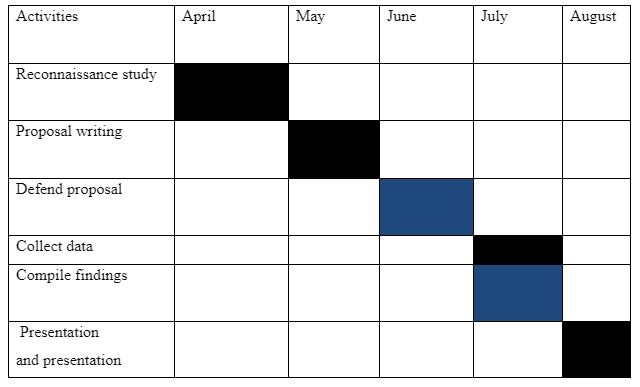Background
The tourism sector plays a critical role in advancing the economy of a country. The success of every organization essentially relies on leadership practices. In the tourism sector, it is significant to consider the role of both leaders and employees in fulfilling the sector’s success. Empowering leadership practices naturally affects the job satisfaction of tourism employees. The workers provide services based on their leader’s leads and practices; they behave according to how they treat them. It is, therefore, necessary to determine the relationship between empowering leadership practices and the impact on the job satisfaction of tourism employees.
Problem
Most people fail to understand that the success of the tourism sector solely depends on leaders. The practice of these leaders affects the job satisfaction of the employees. The workers perform best in a conducive and enriching environment. The main challenge in the tourism industry is leadership execution of their duties since most leaders are less informed on what they should execute. Leaders are ignorant and unaware that they generally impact employees’ satisfaction hence the outcome of the industry. Therefore, they need to be empowered on their expected duties to achieve positive job satisfaction in the employees. The present research aims to build good practices from the managers and establish the importance of leadership in fulfilling employees’ satisfaction. It will focus on empowering leadership practices to achieve positive outcomes.
Research Questions
- What are good and expected leadership practices in the tourism industry?
- What is the importance of empowering leadership practices?
- What do employees in the tourism industry gain from empowered leadership practices in regards to their job satisfaction?
Hypothesis
- Good leadership practices are associated with job satisfaction of the employees.
- There is a positive relationship between leadership empowerment and employee job satisfaction
- Leadership empowerment is the determinant of employee job satisfaction in tourism sector.
Methodology
The study will employ quantitative research methods where it will use both open and closed questionnaires in acquiring information. The questionnaires will be issued to different respondents and focus group discussions. A survey will be done to determine the impact of less empowerment on employee’s job satisfaction. Numbers 1 and 2 will be assigned to men and women, respectively and a nominal and interval scales used. Additionally, an interview will be carried out for the leaders and the employees. An observation of the workflow will be done and recorded daily, weekly, and monthly.
Target Group
The research focuses on both female and male in the tourism sector. The target age group is 18 years and above. 15 older people will be selected randomly and interviewed to get knowledge on past experiences. 10 youths will also be selected randomly and 5 middle age people.
Outline
- It is, therefore, necessary to determine the relationship between empowering leadership practices and the impact on the job satisfaction of tourism employees.
- The work productivity before and after empowerment.
- Impact of empowerment in fulfilling the mission and goals of the industry.
- Results after empowerment
Literature
Exercising good leadership practices helps in the decision-making and the general performance of the company. Zhao and Li (2018) argue that tourism has improved infrastructure construction and enhanced environmental awareness positive effect on the environment The leaders can foster employee’s job performance through showing actions that empower them (Kundu et al., 2019). This opens a discussion for both the employees and the leaders. The communication between the workers and the leaders improves, and duties are fulfilled. According to Kaya and Karatepe (2020), employees pay particular attention to how their supervisors behave. Moreover, the employees gain trust in their managers; hence, they can execute their responsibilities without supervision. Kundu et al. (2019) reiterate that leadership empowerment depicts that employees emulate the supervisor’s behaviors to help them adopt a similar ideology. Workforce productivity is vital in achieving the mission and goals of the industry. In the recent past, poor leadership has been experienced in most organizations. Industries are closed down due to poor job satisfaction and mismanagement. Following research, endowing management behavior positively influences subordinate psychological mandate and job performance (Kundu et al., 2019). Therefore, leadership empowerment can advance the level of job performance generally in the employees.
Time Plan

References
Kaya, B., & Karatepe, O. M. (2020). Does servant leadership better explain work engagement, career satisfaction and adaptive performance than authentic leadership?. International Journal of Contemporary Hospitality Management. Web.
Kundu, S. C., Kumar, S., & Gahlawat, N. (2019). Empowering leadership and job performance: mediating role of psychological empowerment. Management Research Review, 42(5), 605-624. Web.
Zhao, J., & Li, S. M. (2018). The impact of tourism development on the environment in China. Acta Sci. Malays, 2, 1-4. Web.